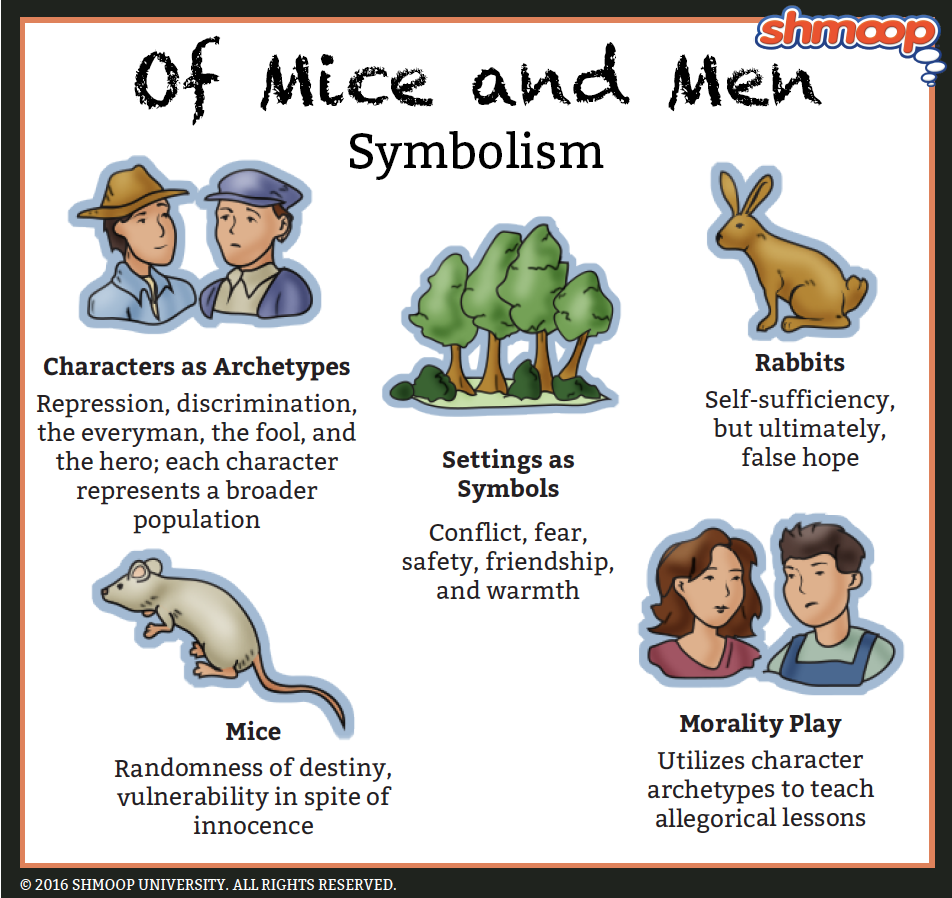Symbolism, Imagery, Allegory

(Click the symbolism infographic to download.)
Mice represent the false hope of a safe space for Lennie. The title is a good hint that mice are important here, but the first mouse we encounter is a dead one. Actually, it's a dead one that Lennie keeps in his pocket to pet. This is a huge clue: Lennie doesn't care much about death, and he's more concerned with comfort—remembering this makes Lennie's death a bit more palatable. He'll be more comfortable if dead by his friend's gentle hand than with a violent end from Curley or the cage of an asylum.
Mice are a source of comfort for Lennie, as he links them to his nice Aunt Clara. In fact they're all he really remembers of her. But in addition to this warm reminder, mice also make it clear that Lennie suffers from the problem of hurting what he loves. He likes to pet soft things, which leads him to kill mice, his puppy, and Curley's wife; thus Lennie's happiness tends to end in some form of suffering. Like Lennie, mice suffer because they're small: a mouse's physical smallness leaves it vulnerable, while Lennie's mental smallness is his undoing.
Finally, coming back to the title, mice, like men, suffer from the randomness of destiny. As the Burns poem goes, both mice and men are victim to their best laid plans going awry. From the largest to the smallest creature, the most important to the least important man, destiny doesn't discriminate in laying out cruel fates. So at the end of the day, Lennie is in his own way much like a mouse—killed because of his vulnerability, and in spite of his innocence.